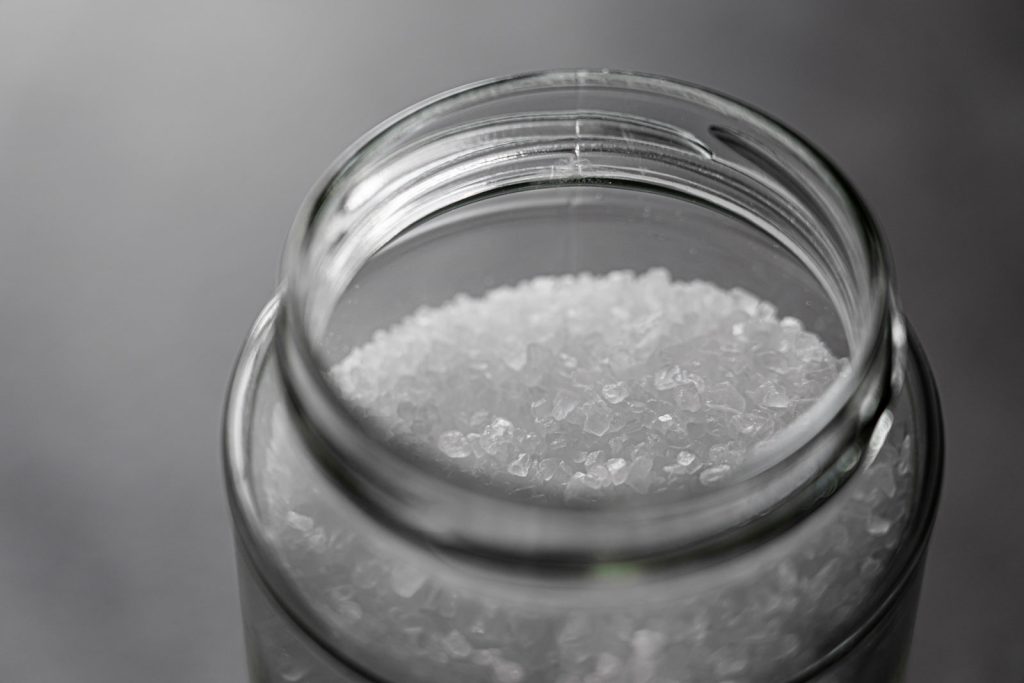The Health Benefits of Salt: Enhancing Your Well-being

Introduction
Welcome to our comprehensive guide on the health benefits of salt. At Healthy Tips, we believe in providing you with the most accurate and up-to-date information to help you make informed decisions about your health. In this article, we will explore the various ways in which salt can contribute to your well-being, dispelling common misconceptions and highlighting its positive effects on the body.
Understanding Salt
Salt, chemically known as sodium chloride (NaCl), has been an integral part of human civilization for thousands of years. Not only does salt enhance the flavor of our food, but it also plays a crucial role in maintaining optimal bodily functions. Contrary to popular belief, when consumed in moderation and as part of a balanced diet, salt can offer numerous health benefits.
Regulating Fluid Balance
One of the key functions of salt in the body is its ability to regulate fluid balance. Sodium, a major component of salt, helps maintain the balance of fluids both inside and outside of our cells. This balance is vital for proper hydration, nerve function, and muscle contractions. By ensuring adequate sodium intake, you can help prevent dehydration and maintain optimal bodily functions.
Electrolyte Balance and Nerve Function
Salt is also essential for maintaining electrolyte balance, which is crucial for proper nerve function. Electrolytes are electrically charged minerals that facilitate communication between cells and help transmit nerve signals. Sodium, along with other electrolytes like potassium and magnesium, plays a vital role in this process. By consuming salt in moderation, you support the efficient functioning of your nervous system.
Supporting Adrenal Function
The adrenal glands, located on top of your kidneys, produce hormones that are essential for various bodily processes. Salt intake is closely linked to adrenal function, as the adrenal glands rely on sodium to produce aldosterone, a hormone that helps regulate blood pressure. Adequate salt consumption can support healthy adrenal function and contribute to overall well-being.
Improving Digestive Health
Contrary to popular belief, salt can actually promote digestive health when consumed in appropriate amounts. It stimulates the production of stomach acid, which is necessary for breaking down food and facilitating nutrient absorption. Additionally, salt helps maintain the balance of beneficial bacteria in the gut, supporting a healthy digestive system.
Promoting Respiratory Health
Salt has been used for centuries in respiratory therapies, thanks to its natural ability to alleviate respiratory conditions. Salt inhalation can help reduce inflammation and loosen mucus, making it easier to breathe. Whether through salt therapy sessions or simply spending time near the ocean, incorporating salt into your respiratory wellness routine can be beneficial.
Maintaining Bone Health
Another surprising benefit of salt is its contribution to maintaining strong and healthy bones. Sodium plays a critical role in calcium absorption, a mineral that is vital for bone health. When combined with an adequate intake of calcium and vitamin D, consuming salt in moderation can help promote strong bones and reduce the risk of osteoporosis.
Conclusion
In conclusion, salt, when consumed in moderation and as part of a balanced diet, offers several health benefits. From regulating fluid balance and supporting nerve function to promoting digestive and respiratory health, salt plays a crucial role in maintaining overall well-being. By incorporating salt mindfully into your diet, you can harness its positive effects and enjoy the benefits it has to offer.
Remember, it’s essential to consult with a healthcare professional or a registered dietitian to determine the appropriate amount of salt intake based on your individual needs. With proper guidance, you can make informed decisions about your diet and enjoy the health benefits that salt can provide.
So embrace salt as a valuable ingredient in your culinary endeavors and embrace the potential it holds for enhancing your overall health and well-being.